Ever joined a workplace where no one seemed sure about the rules like when to apply for leave, where to report a grievance, or how decisions were made? This type of misunderstanding not only frustrates employees, but it also slowly erodes trust. And that’s exactly where strong HR policy, robust compliance systems and clearly communicated workplace ethics step in. Programs for ethics and compliance are crucial for businesses and organisations. This is because they explain the rules that businesses must abide by in order to conduct operations legitimately. Business failure could result from violation of ethics and compliance standards. For example, it could result in legal problems. By acting unethically, businesses can also harm their reputations. Organisations must therefore make every effort to guarantee staff compliance.
Drafting and Updating HR Policies: Establishing Clear Workplace Norms
The cornerstone for attracting in and retaining the best staff is providing a competitive base salary. A compensation that is on par with or higher than the industry benchmark is crucial in this regard. Organisations that give compensation in line with industry norms express their appreciation for employees' contributions and build a foundation of dedicated and motivated employees. Competitive pay also improves an organization's standing as a top employer in the eyes of prospective employees.
Effective HR policies should:
• Define core processes related to leaves, attendance, hybrid or remote work
•Clearly describe steps for grievance resolution and escalation
• Address workplace harassment, misconduct, and disciplinary actions
• Stay updated in line with labor laws and regulatory changes
But the job doesn’t stop once they’re written. Policies must evolve. As laws shift, feedback rolls in, and the company scales, HR teams must routinely review and revise to ensure relevance, clarity and alignment with the employee experience.
Employment Law and Compliance Essentials: Protecting Rights with Responsibility
Legal compliance is not just about avoiding penalties—it’s about building an organization where employees feel secure, protected, and heard. Whether you’re a startup or a multinational, compliance is the scaffolding that supports trust and accountability in the workplace.
Key compliance areas for HR include:
• Accurate payroll processing, statutory deductions, PF, ESI, and bonuses
• Adhering to contract labor regulations and third-party staffing rules
• Implementing and regularly training staff on POSH (Prevention of Sexual Harassment)
• Maintaining employee records, contracts, and compliance-ready documentation
Modern tools like automated compliance dashboards and document management systems have made it easier than ever to ensure adherence to legal frameworks while staying efficient and transparent.
Promoting Workplace Ethics and Anti-Discrimination Policies
A company’s culture isn’t just defined by what it celebrates, it’s also shaped by what it refuses to tolerate. HR plays a central role in building ethical workplaces where inclusion, fairness and respect are one of the zero tolerances.
Core ethical practices include:
• Administering unbiased hiring and appraisal frameworks
• Conducting regular training on ethics and DEI (Diversity, Equity, and Inclusion)
• Providing safe, confidential channels for reporting concerns
• Promoting equitable growth, leadership opportunities, and fair compensation
Ethical workplaces improve employee engagement and attract better talent by creating an environment where everyone feels seen, respected and the most important i.e safe.
From Policy to Culture
Think of it this way: your HR policy is the skeleton of your organizational structure. Compliance gives it strength and accountability. Ethics add the heart. Together, they form the framework of a culture that doesn’t just run, it thrives.
The workforce today wants more than a job, they want alignment with their own values. They want to know they’ll be treated fairly, work with purpose and grow in a workplace that values their individuality. This clarity plays a huge role in employee engagement, reducing guilt and building long-term loyalty.
Search trends reflect this rising awareness:
• “Updated HR policies 2025”
• “Inclusive work culture examples”
• “Statutory compliance for HR”
• “Ethical workplace behavior policy”
Conclusion
A responsible workplace doesn’t just run efficiently it runs ethically, clearly, and compassionately. That responsibility starts with HR. Employees will be forced to think about ethics and compliance rules if the human resources department creates an environment that does not allow non-compliance. For instance, the human resources department can guarantee that irregular behaviour is not tolerated by management. Hiring staff members with flawless records is another way the HR division may boost compliance. Businesses will have a higher chance of adhering to ethical and compliance standards because the likelihood of such individuals breaking the law is low.
Liked what you just read? Want to learn more or try real tasks?
Join Indian0’s Digital Internship 2.0, it’s all about learning by doing.
Want to start your career with real experience, not just theory?
We’ve got you covered with a range of practical, hands-on learning opportunities through:
• Digital Internship in Digital Marketing
• Digital Internship in Sales & Marketing
• Digital Internship in Business Development
• Digital Internship in Social Media Optimisation
• Digital Internship in Search Engine Optimisation
• Digital Internship in Content Creation
• Digital Internship in Content Writing

 Wanna stay updated about courses
Wanna stay updated about courses